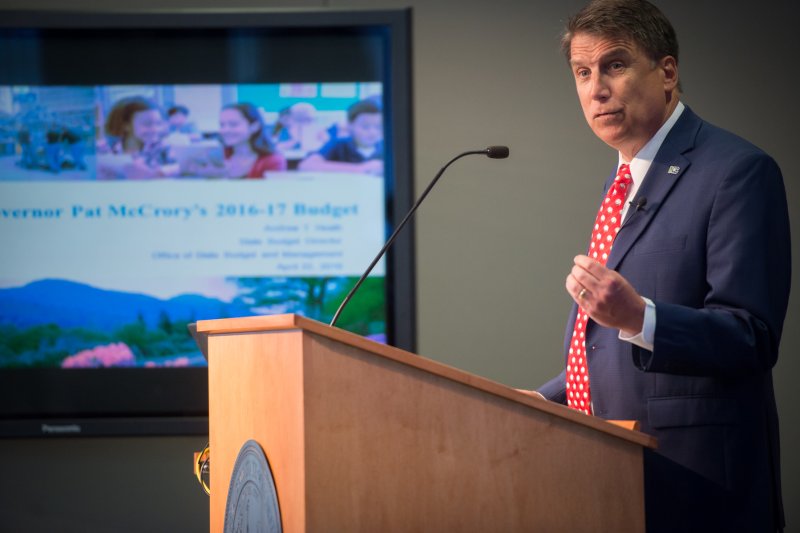North Carolina Gov. Pat McCrory's administration lost its request for an emergency stay of a lower court's ruling that found the state's restrictive new voter identification law unconstitutional. File Photo courtesy the office of Gov. Pat McCrory
WASHINGTON, Aug. 31 (UPI) -- After issuing a split 4-4 vote Wednesday, the U.S. Supreme Court has left in place a lower court's ruling overturning a restrictive voter identification law in North Carolina.
The vote came after North Carolina Gov. Pat McCrory's administration filed a request for an emergency stay to stay the Fourth Circuit's decision overturning the law.
The decision is a victory for civil rights groups and the Obama administration, which opposed the law on the grounds it unfairly targeted minority voters, making it more difficult for them to vote.
The law required registered voters to show one of several forms of photo identification, most prominently a driver's license or passport. Opponents pointed to studies showing minority and low income voters are most likely to possess any of the acceptable IDs, which would have made them ineligible to vote.
The law also reduced the number of early voting days from 17 to 10. Because minorities and low income voters typically face the largest hurdles to reaching a polling place due to a combination of irregular employment hours, lack of childcare and reliance on public transportation, that meant minorities also relied more on early voting than affluent white voters. The reduction also left just one Sunday for early voting, which is significant because many black pastors use the pulpit to advocate on behalf of candidates and encourage early voting in an initiative known as "pews to polls."
Proponents of the law said it will cut down on instances of election fraud by ensuring everyone is who they say they are when showing up to vote.
The Fourth Circuit agreed with civil rights groups and said the North Carolina law singles out minorities with "almost surgical precision," ruling it unconstitutional.
The Supreme Court on Wednesday voted 4-4 on the McCrory administration's request to restore the voting law prior to the election in advance of its appeal.
Three members of the High Court's conservative bloc, Chief Justice John Roberts, and Associate Justices Samuel Alito and Anthony Kennedy, said they would have permitted a partial stay of the lower court's ruling. Associate Justice Clarence Thomas voted for a full stay. The court's four-member liberal bloc voted against the stay.
The 4-4 split is the latest in a court often evenly divided on ideological lines in the wake of the death of Justice Antonin Scalia, who with Roberts, Alito, Thomas and Kennedy often formed a conservative majority on cases involving politically polarizing questions such as voting rights. Combined, the five justices voted to overturn a key provision of the landmark 1964 Voting Rights Act, which required voting districts in several Southern states with a legacy of disenfranchisement to pre-clear any changes to voting laws or election administration with the U.S. Justice Department.
In the wake of that case, Shelby County, Ala., v. Holder, several Southern states in addition to North Carolina have passed restrictive new voter ID laws that are now being litigated in federal courts to varying effect.
Democratic presidential nominee Hillary Clinton tweeted Wednesday, hailing the court's split vote as "a win" for minority voting rights.















